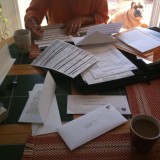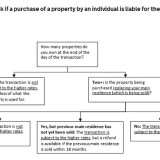Conveyancing Solicitors in Exeter
Purchasing or selling a home in Exeter can be a stressful procedure that’s also can take up a lot of time. If you use a competent and experienced Conveyancing Solicitor the transaction will likely be fast, simple and painless.
The legal representation acting on your transaction is very important in the house-buying process, and it’s vital that you pick a recommended conveyancer.
The Licensed Conveyancers or Property Solicitors job is to process the legal side of house-buying on your behalf. They’ll check different aspects of the property and surrounding land, negotiate with the seller’s solicitor, arrange the transfer of money and write and exchange sale contracts.
Exeter Remortgage Solicitors
Our highly rated licensed conveyancers have completed hundreds of remortgages in Exeter. Our panel of remortgage conveyancing solicitors can work for 99% of mortgage lender in the UK. Our conveyancers act fast and have some of the lowest UK timeframes for remortgage conveyancing.
Leasehold Conveyancing Exeter
If you’re buying or selling a leasehold house or property it’s even more important that you instruct a capable and proficient Licensed Conveyancer. With Leasehold property sales the legal work can be a little more complex than a freehold house. This makes the price for the conveyancing service for leasehold transactions, offered by Conveyancing Solicitors, is marginally more expensive. You’ll pay a little more money as there is a bit more tricky paper work included. A leasehold transactions often will take more time.
Conveyancing Insurance
Conveyancing Firms come with Indemnity insurance for conveyancing processes to insure you from any legal issues with the house which can not just be resolved swiftly, or can’t be fixed at all. Legal indemnity insurance protects the property buyer and the mortgage provider in case of any decrease in value on the property or land as a result of any defect or legal issue. The Council of Mortgage Lenders’ (CML) handbook for conveyancers says: “You must effect an indemnity insurance policy whenever the Lenders’ Handbook identifies that this is an acceptable or required course to us to ensure that the property has a good and marketable title at completion.”
Payments and Deposits for buying a property
Your conveyancer will help you through the first stage of purchasing – negotiating and signing the contract and exchanging with the seller. This will involve putting down a deposit, this is usually around 5%-15% of the agreed price.
There will be a number of extra fees to pay, that includes mortgage lender fees, before the purchase is finished. The biggest cost will be SDLT – this is a UK Government tax on home buying.
The conveyancer fees include Land Reg costs and local authority search fees, plus various different costs that are included as disbursements. The conveyancing solicitor sum-up all these required bills and let you know the overall cost.
About Exeter
Exeter (i/ˈɛksᵻtər/) is a cathedral city in Devon, England with a population of 127,300 (mid-2015 est.). It lies within the county of Devon, of which it is the county town as well as the home of Devon County Council. Currently, the administrative area has the status of a non-metropolitan district and is therefore under the administration of the County Council (there was a plan to grant the city unitary authority status, although this was scrapped under the 2010 coalition government). The city is on the River Exe about 37 miles (60 km) northeast of Plymouth and 70 miles (110 km) southwest of Bristol.
Exeter was the most south-westerly Roman fortified settlement in Britain, although there is evidence a Cornish tribe existed in Exeter before the Roman invasion. Exeter became a religious centre during the Middle Ages and into the Tudor times: Exeter Cathedral, founded in the mid 11th century, became Anglican during the 16th-century English Reformation. During the late 19th century, Exeter became an affluent centre for the wool trade, although by the First World War the city was in decline. After the Second World War, much of the city centre was rebuilt and is now considered to be a centre for modern business and tourism in Devon and Cornwall.
(from Wikipedia).
The national average timescale for conveyancing is between 9-10 weeks. Conveyancing for simple purchase transactions can take just 4-6 weeks but a more complicated transaction can take much much longer to complete. Some transactions have been known to take over a year to complete, why? More info visit our How long does conveyancing take?.
If you are buying a property in Exeter (or anywhere in England and Wales), for more than £125,000, you will be subject to Stamp Duty Land Tax (or SDLT for short). This tax is calculated in brackets, like the UK income tax system. When you get a quote with us, we calculate the Stamp Duty (SDLT) you’ll have to pay for you. For more info visit our Stamp Duty Rates and Examples page.
Devon, also known as Devonshire, which was formerly its common and official name, is a county of England, reaching from the Bristol Channel in the north to the English Channel in the south. It is part of South West England, bounded by Cornwall to the west, Somerset to the northeast, and Dorset to the east. The City of Exeter is the county town; seven other districts of East Devon, Mid Devon, North Devon, South Hams, Teignbridge, Torridge, and West Devon are under the jurisdiction of Devon County Council; Plymouth and Torbay are each a part of Devon but administered as unitary authorities. Combined as a ceremonial county, Devon's area is 6,707 km2 (2,590 square miles) and its population is about 1.1 million.
According to the current Hoopla estimates, the current average value in Devon in May 2017 is £283,373. This has increased 0.77% from February 2017. Terraced properties sold for a current average value of £212,677 and semi-detached properties valued £248,893. In the past year property prices in Devon have increased 3.37%.






